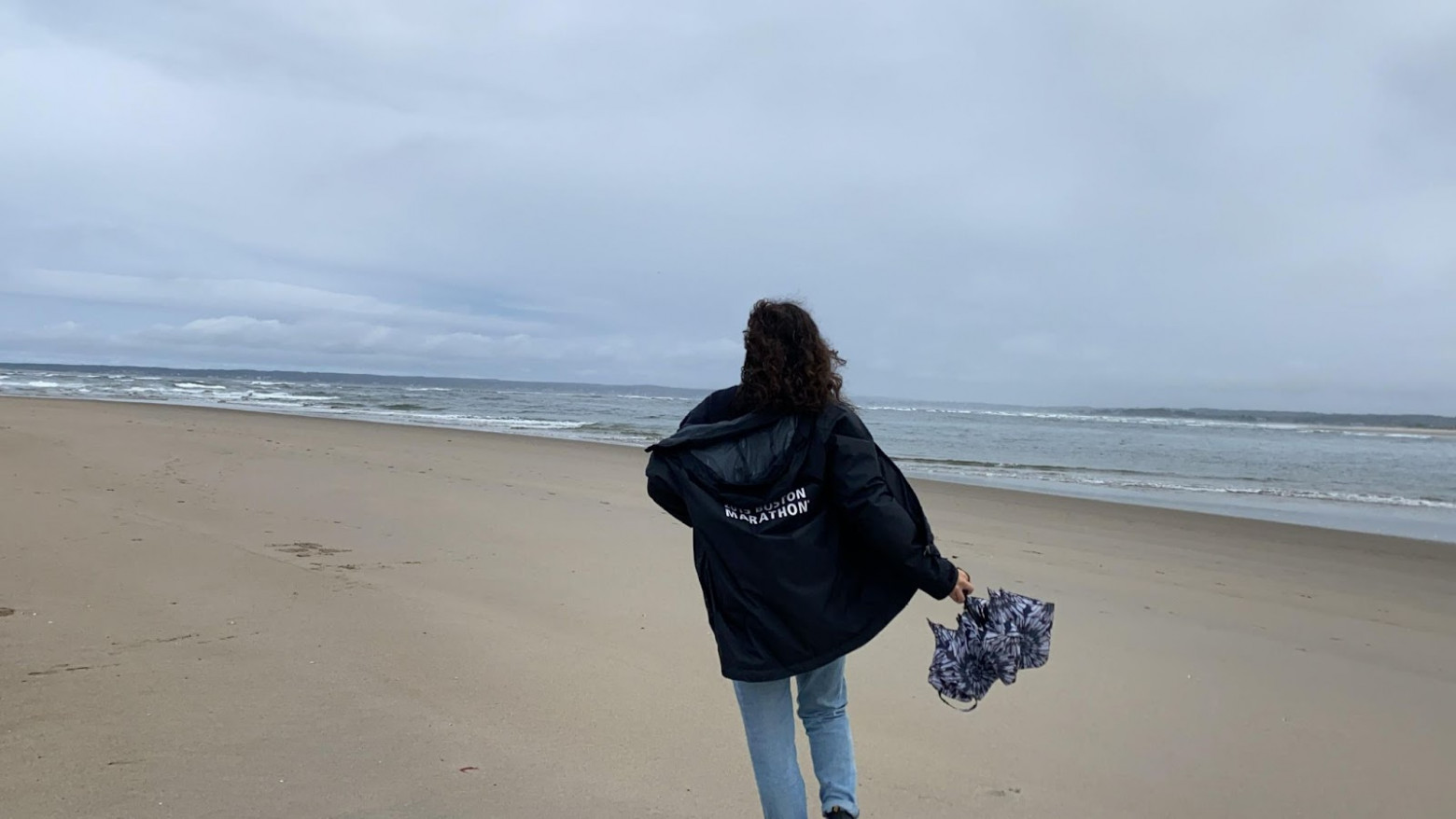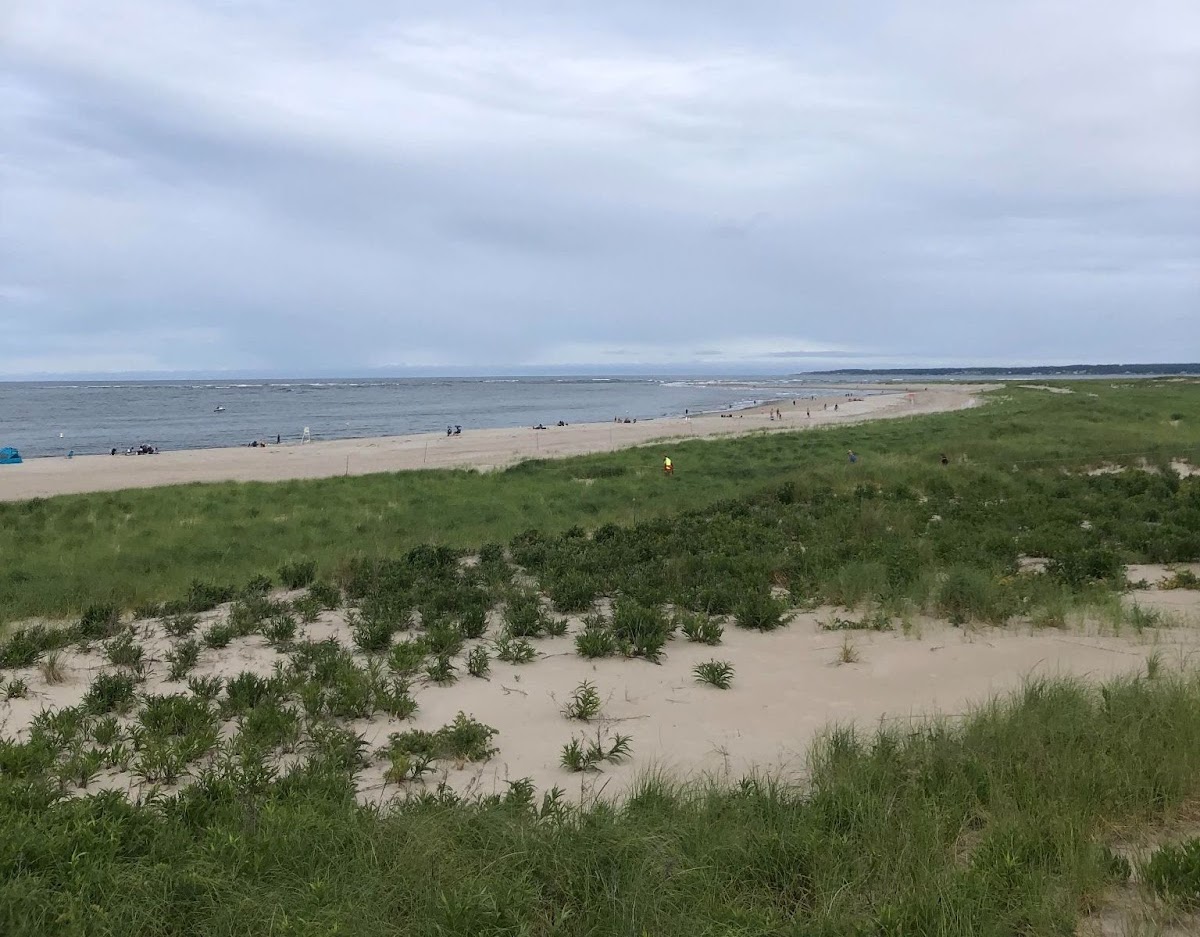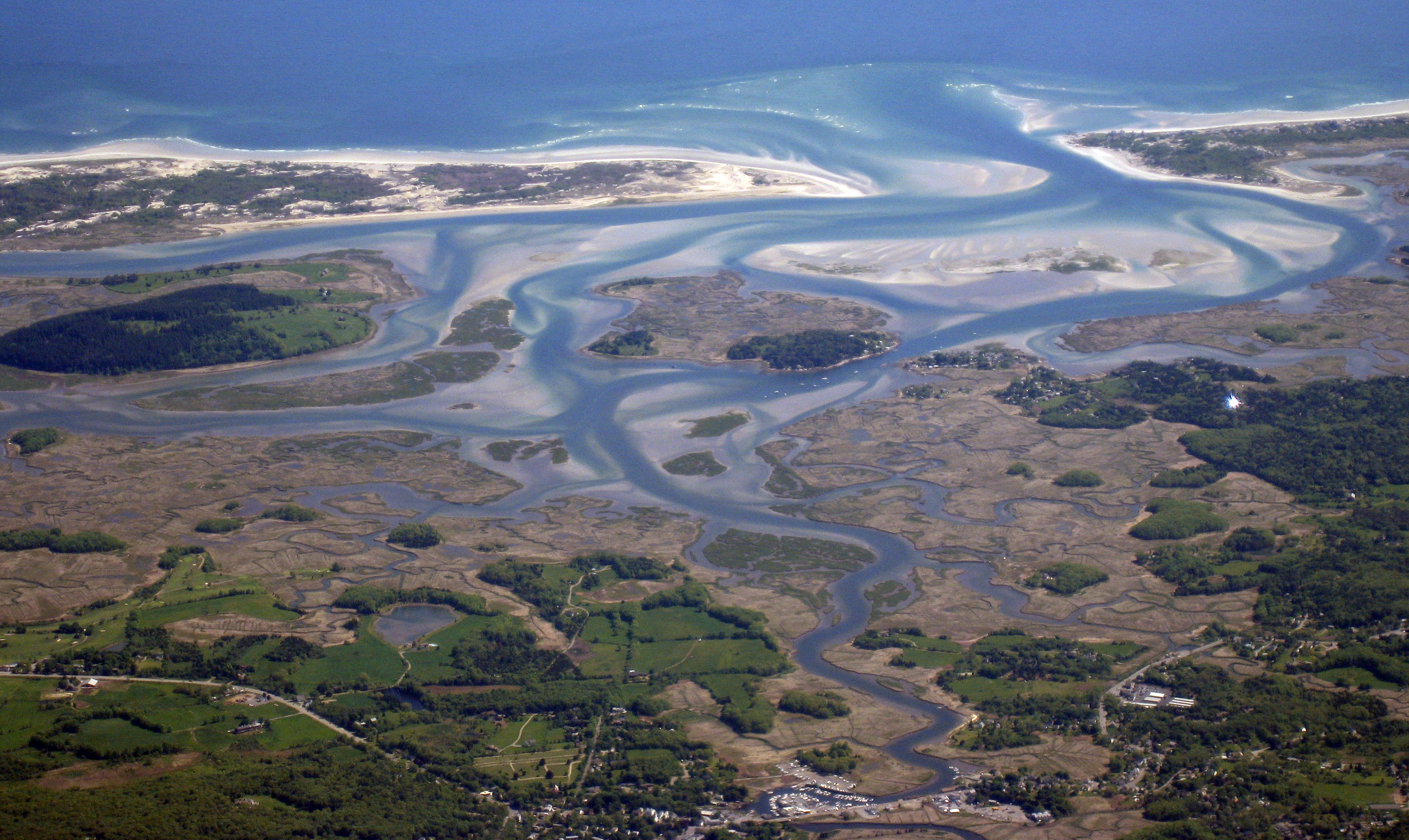
The author on Crane Beach in Massachusetts on a cold and rainy day. (Photo courtesy Lisa Pemstein)

The author on Crane Beach in Massachusetts on a cold and rainy day. (Photo courtesy Lisa Pemstein)
No matter where I go, my heart will always live on the North Shore of Massachusetts. These are the brown rock quarries that my mom swam in every summer growing up, the rocky shores my great-grandparents sailed, fished, and maintained their houses on, the stretches of sand my family stands on every Jan. 1, wind-whipped and freezing but our hearts full with the reminder that the ocean will be there for us year after year. The icy ocean waters of Massachusetts are powerful and unpredictable. These are the choppy waves that I’ve ridden on a broken boogie board, the ocean that covered my 10-year-old body and slammed me upside-down into the rough sand before depositing me unceremoniously on dry land with seaweed hair, an unrestrained smile, and my boogie board tied to my wrist. I would let my mother be concerned over my dramatic tumble for a few salty coughs before I’d run right back into the froth. I’ll always choose to get back in that water.
But soon, I might not be able to.
Each year, these beaches get smaller and smaller due to sea level rise. Crane Beach in Ipswich, Massachusetts, is the most popular beach on the North Shore, with more than 350,000 annual visitors. Tragically, Crane also takes the lead in dramatic beach erosion and flooding. Crane Beach has already lost 112 acres of shoreline — the beach my mom ran around as a child isn’t the same as the one I did. Nearly 1,500 feet of sand and dunes have been lost since I was born in 2001. The beach has a serious flooding problem, and water sometimes covers part of Argilla Road, the only road to the beach. A stretch of the road is surrounded by the Great Salt Marsh, which regularly floods as a result of sea level rise and storm surge. In 10 years, Argilla Road could be flooded on a daily basis, and in 50 years, the beach could become completely inaccessible. Will my kids even be able to get to the beach that I grew up on?

These fishing towns that feed my spirit — Ipswich, Gloucester, Rockport — all financially depend on beach tourism and family seafood businesses. What’s more, Crane Beach is one of the world’s most essential nesting sites for piping plovers, a threatened bird that was nearly hunted to extinction in the 1800s. Crane Beach is an invaluable stretch of sand that holds incredible importance to the financial stability of the town, to Piping Plovers, and to the hearts of everyone who visits year after year.
Climate change, and the extreme weather events it exacerbates, are expected to increasingly disrupt towns all over the country. High-tide flooding due to sea level rise is exponentially increasing, threatening the coastal property market and town infrastructure. On the Atlantic coastline, all it takes is a local sea level rise of 1.0 to 2.3 feet for high tide to turn into a major destructive flood. Massachusetts North Store’s State of the Coast report makes it clear: “an increase in the level of the world’s oceans is due to global warming,” and sea level rise poses a serious threat to coasts with intensified storm surges, flooding, and damage of coastal zones.
The town of Ipswich recently completed the first two phases of their project to raise Argilla Road by 18 inches, and to create natural banks on the sides of the road to protect the new elevation from erosion. The town is also working to restore the marsh that Argilla Road runs through. Workers are performing “ditch remediation,” filling in the centuries-old unnatural ditches with natural salt marsh hay. These efforts will restore the natural flow of water in the marsh, hopefully reducing flooding from sea level rise and storm surge, and keeping Argilla road dry. The Trustees of Crane Beach work hard to organize around this issue, from partnering with environmental organizations to holding educational community events to creating a podcast to spread the message. This gives me hope for the town, and for the future of my beloved beach.

Crane Beach is a beautiful stretch of dunes and choppy New England waves that will freeze your toes off. People stood on that beach thousands and thousands of years ago. A seagull swooped down and snatched an entire sandwich out of my father’s hand on that beach six years ago. Beyond its financial importance, Crane Beach is a gorgeous, invaluable spot in the universe. The waves can be relentless, but I will always choose to get back in the water.
For now, it looks like Crane’s next generation of baby Plover birds will have a chance to spend their babyhood on the beach their mothers chose. But will my children have the same opportunity? It depends on the continued commitment of the town of Ipswich to combat the effects of climate change.